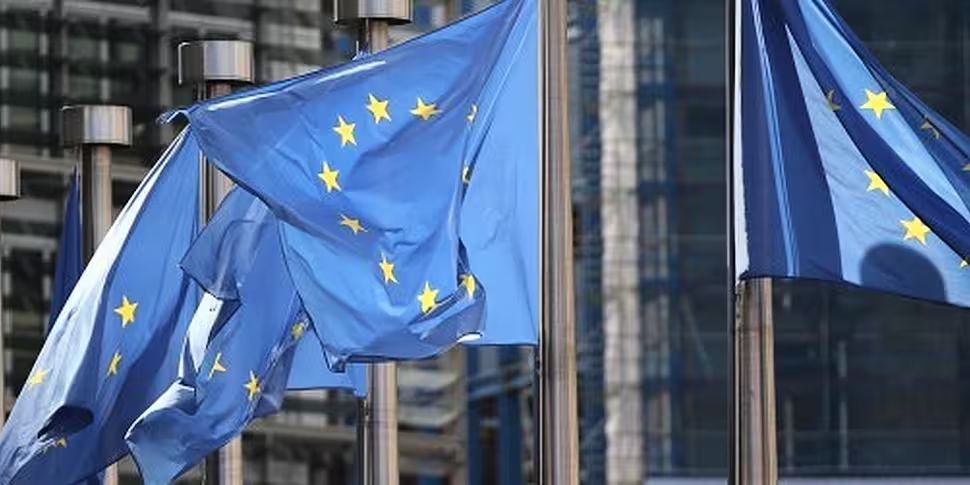After a few months of relative calm, the ongoing political row over the future of water charges has erupted yet again.
The latest controversy surrounds Housing Minister Simon Coveney's suggestion that he would not bring forward laws if the new system did not include charges for households who waste water.
Minister Coveney says European law requires those measures, and he will not legislate to get rid of them.
"I am not going to take a position that is contrary to the independent legal advice the Government has from the Attorney General's office," he argued. "That would just be blatantly irresponsible of me."
The remarks came as it was reported that the majority of a special Oireachtas committee appear to be in favour of the total scrapping of water charges.
What are the EU rules?
Minister Coveney was referring to the EU's Water Framework Directive - adopted in 2000 - which introduced various obligations on member states.
The directive introduced rules under the 'polluter pays' principle.
The EU explains: "Adequate water pricing acts as an incentive for the sustainable use of water resources and thus helps to achieve the environmental objectives under the Directive.
"Member States will be required to ensure that the price charged to water consumers - such as for the abstraction and distribution of fresh water and the collection and treatment of waste water - reflects the true costs."
However, the EU acknowledged that while the principle of dedicated water charges has long-since been in place in some countries, it was not the case in other member states.
Speaking on Newstalk Breakfast, UCD law Professor Gavin Barrett explained: "There must be a polluter pays system. There must be a system whereby users make some sort of 'adequate contribution', to use the words of the directive.
"The idea that you can completely abolish water charges is simply not on," he suggested.
Simon Coveney has argued that Ireland is 'likely' be brought before European courts if we attempt to abolish charges - which could lead to the State facing massive fines if we are found to be in violation of EU directives.
Disagreement

Water charges have led to major protests in recent years. Image: RollingNews.ie
Opposition parties, however, have disputed the legal advice cited by Mr Coveney - suggesting that they have in fact received advice to the contrary.
Sinn Féin MEP Lynn Boylan last year said that legal advice she has received confirms charges can be scrapped.
In a statement today, she called on Simon Coveney to release his advice, arguing: "The reason that the advice needs to be published is because there is legal advice to the contrary as well as a dearth of information of obfuscation and deceitfulness on behalf of the European Commission on this subject."
She added: “There needs to be clarity around the EU commission position on water charges instead of conveniently hiding behind simple narratives because of fear of the complexity of the Water Framework Directive."
Fianna Fáil - which supports water being paid for through general taxation - has also indicated that it has legal advice suggesting abolition would comply with EU directives.
Professor Barrett was "astonished" that legal advice would suggest that water charges can be abolished.
"I don't know where they got that legal advice - I'm sure whoever gave it gave it in good faith, but I don't believe its correct," he argued.
Irish Water itself, meanwhile, has warned that there is no way to abolish charges and provide water for free.
'Established practice'
Another ambiguity revolves around the issue of 'established practice' for water charges.
Last year, Lynn Boylan submitted a question to the European Commission, asking if flexibility previously afforded to Ireland on water charges still applies after the (currently suspended) charging regime came into effect in 2015.
In a response, the Commission said: "If the established practice is to have a system in place implementing the recovery of the costs of water services, in accordance with the polluter pays principle, the Commission considers that the flexibility afforded to Member States [...] would not apply".
The Sinn Féin MEP claimed the advice was 'deliberately vague', adding: "I don't think that anybody in their right mind would say that the established practice in Ireland is Irish Water."
Ultimately, the Government will struggle to have any water charges reintroduced as a majority of TDs oppose the idea.
In its agreement with Fianna Fáil, Fine Gael pledged to "facilitate the passage of legislation [...] for the implementation of the recommendations in relation to domestic water charging".
Any departure from the deal could see the minority government under serious pressure.
For now, however, we will have to wait for the Oireachtas committee to deliver their final verdict and recommendations.









